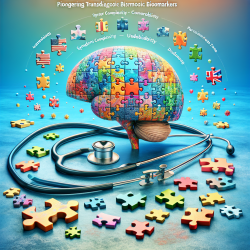As a practitioner working with survivors of sexual and gender-based violence in conflict zones, it is crucial to stay informed about effective mental health and psychosocial support interventions. A systematic review titled Sexual and gender-based violence in areas of armed conflict: a systematic review of mental health and psychosocial support interventions provides valuable insights into this field.
The Importance of Mental Health Support
Sexual and gender-based violence is a devastating reality in areas of armed conflict. Survivors often face severe psychological distress, including anxiety disorders, PTSD, depression, and substance use disorders. The social impacts are equally profound, leading to isolation, rejection by family and community, and impaired parenting skills.
Key Findings from the Systematic Review
The review assessed 5,684 records and identified seven studies that met the inclusion criteria. These studies were conducted in West and Central Africa, Albania, the UK, and the USA. They included various interventions such as individual and group counseling, cognitive behavioral therapy (CBT), medical care, and economic support.
- Individual and Group Counseling: This approach showed potential benefits in reducing PTSD symptoms among women exposed to sexual violence.
- Cognitive Behavioral Therapy: CBT was found effective in single case studies for reducing PTSD symptoms among rape survivors.
- Combined Interventions: Programs integrating medical care with psychosocial support showed improvements in functioning and symptomatology.
Challenges and Limitations
The review highlighted significant limitations in the existing studies, such as the lack of randomized controlled trials (RCTs), high dropout rates, and combined interventions making it difficult to isolate specific effects. Furthermore, most studies focused on female participants, leaving a gap in understanding interventions for male survivors or children under 14 years old.
Implications for Practitioners
Despite these challenges, practitioners can draw several lessons from the review:
- Partnerships with Humanitarian Organizations: Collaborating with organizations on the ground can facilitate the implementation and evaluation of interventions.
- Cultural Sensitivity: Consider incorporating traditional healing practices alongside modern therapies to enhance acceptance and effectiveness.
- Focus on Rigorous Research: Encourage further research to explore effective strategies for different demographics and settings.
The Path Forward
The review underscores the urgent need for more rigorous research to strengthen the evidence base for mental health interventions in conflict zones. Practitioners should advocate for more comprehensive studies that include diverse populations and employ robust methodologies.
By staying informed about current research findings and actively participating in ongoing education through conferences, publications, and webinars, practitioners can enhance their skills and contribute to improving mental health outcomes for survivors of sexual and gender-based violence in conflict zones.
To read the original research paper, please follow this link: Sexual and gender-based violence in areas of armed conflict: a systematic review of mental health and psychosocial support interventions.










